People say that the eyes are a “window to the soul,” and we couldn’t agree more. Whether you’re trying to read someone’s mind or struggling to understand your own, you might want to do your research on the importance of body language. What does the body language of squinting your eyes mean?
When talking about the importance of body language, we do need to underline that the eyes are considered formidable communicators of feelings for a reason. When you take a glance at someone’s eyes, you’re more than likely to read the context of the situation without resorting to words.
Body language, for what it’s worth, refers to conscious and subconscious nonverbal cues we use to communicate with each other. We can control the words that come out of our mouths, but we can’t control our mannerisms, gestures, movements, expressions, and even the tone of our voice.
Words are great, but we’re known to communicate much more with what we don’t say than with what we do. Our eyes are the visual gateway to the world around us – they show love and compassion, fear and disdain, or worries and concerns. Our eyes are the most expressive when we’re not paying attention.
What does the body language of squinting your eyes mean? What are you supposed to do with other eye movements you’re not sure about? Whatever the reason for your curiosity might be, we’re bringing you everything you need to know about the meaning behind the body language of the eyes.
What does the body language of squinting your eyes mean?
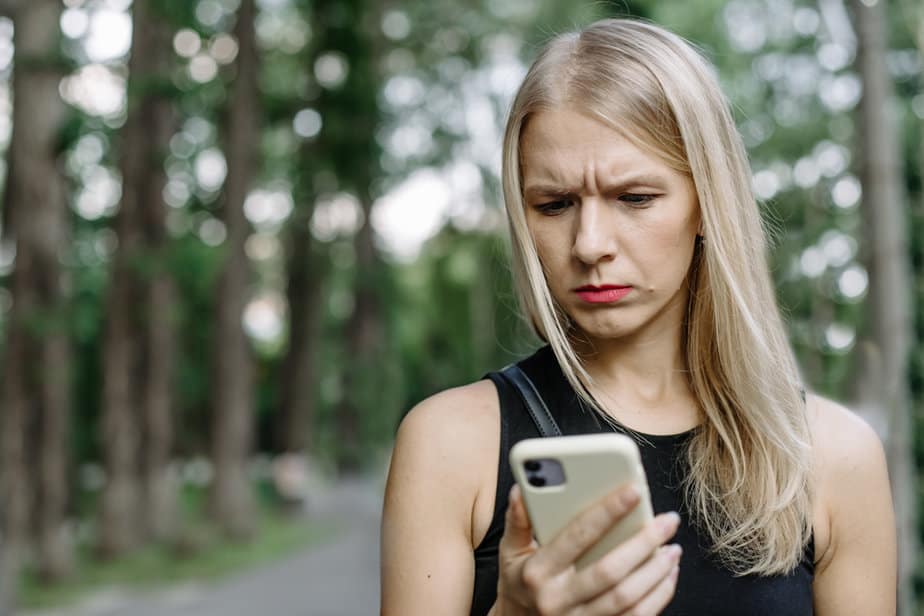
Whether you’ve caught someone squinting at you or you’ve been the culprit the entire time, you might be wondering what the body language of squinting your eyes means. Squinting typically represents some sort of discomfort, stress, anger, or agitation. When you squint at someone, you’re not happy.
We could go on and argue that people squint when they’re struggling with bright sunlight or when they’re tormented by something stuck in one or both of their eyes. When you’re attempting to read someone’s body language, always remember to observe the context of the situation, too.
We often squint our eyes when we’re struggling to see something that’s far away or when we’re trying to figure out whether we know someone or not. “Wait, do you see what I see? I could swear I saw a cat chasing after a dog right there in the corner of the street!”
Whatever the case might be, you can’t read someone’s body language without considering all the bits and bobs that might provide you with even more information. Research shows that we do move our eyes quite a lot when we’re stressed out, excited, worried, or thrilled, and that’s a great place to start, right?
10 common eye movements and how to read them
1. Squinting eyes
“I’m not comfortable at all.”
“Something doesn’t add up.”
“I don’t agree with what you’re saying.”
When we’re squinting our eyes, more often than not, we’re experiencing some sort of discomfort (physical or emotional), stress, or anger. We mentioned beforehand that squinting your eyes can mean a million things depending on the context, which means you’re the one who needs to figure that out.
With that out of the way, though, the body language of squinting your eyes almost always represents something negative. Whether that’s stress, confusion, disagreement, or anger, your eyes are there to give away what you’re feeling.
2. Winking
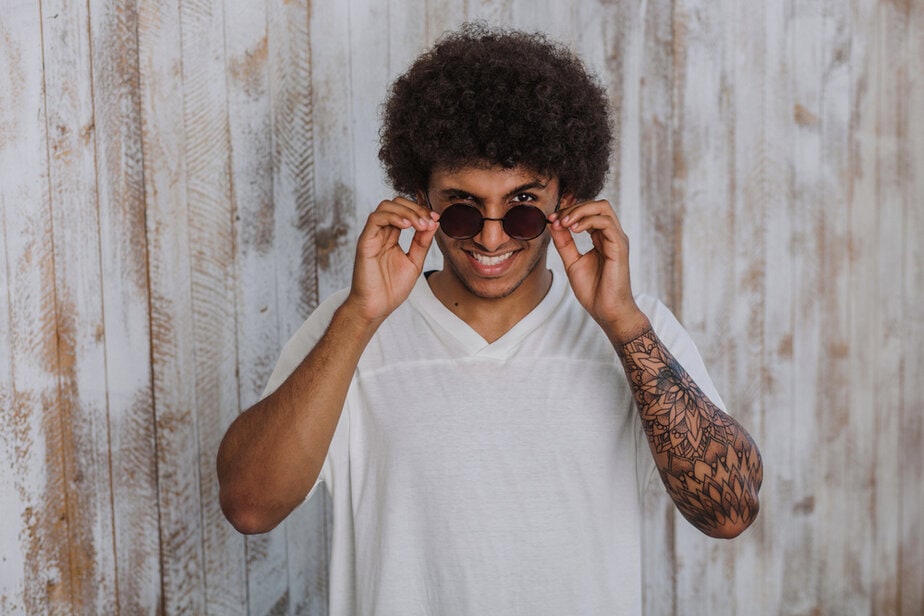
“I like you.”
“I’ll get back to you on that one.”
“I’m flirting with you.”
We’ve all been on the receiving end of a wink, but maybe we weren’t fully aware of what a wink means. When talking about body language, a wink represents a few things that are almost always positive. Winking typically means you’re trying to be flirty, friendly, or playful.
Generally speaking, when you wink at someone that means that you’re friends with them. You wouldn’t wink at a stranger on the street, especially not without context. You’d wink at your friends when you’re teasing them, your SO when you’re flirting with them, or even your family members.
3. Looking up
“I don’t know what to say.”
“I can’t remember that.”
“I wonder if I should…”
Looking up when you’re having a conversation with someone means that you’re trying to remember something or think of what to say. When we look up, we’re trying to figure out whether we know the answer to the question or whether we remember what they’re talking about.
We’d argue that everybody looks up when they’re reminiscing over something – it’s a natural response to not being able to remember something. Looking up typically carries a positive meaning, but you might catch yourself looking up when you’re disappointed in yourself or in disbelief.
4. Looking down
“I’m freaking out.”
“I don’t want to make eye contact.”
“I don’t know what to do with myself.”
What about looking down, though? We wouldn’t necessarily say that looking down carries a negative meaning, but it almost always represents some sort of insecurity, lack of confidence, and submissiveness. When you’re having a conversation and you can’t look up, you’re scared of the person you’re talking to.
We do need to mention that certain cultures consider prolonged eye contact rude and that’s why you might catch them looking down when they’re talking to someone. Looking down can be seen as a gesture of respect toward the person you’re talking to as well.
5. Looking left or right
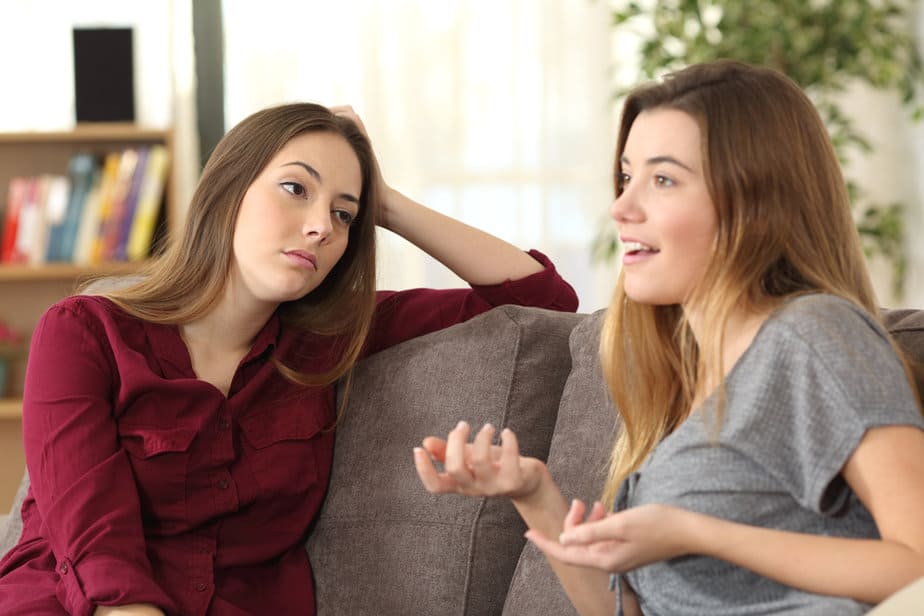
“I’m bored.”
“I don’t believe a word you’re saying.”
“I don’t know how to feel about you.”
Looking sideways during a conversation doesn’t mean anything good, either. When we do that, we’re either bored, trying to figure out what’s going on, or we don’t trust a word of what the other person is talking about. Looking left or right represents doubt, reluctance to commit, suspicion, or contempt.
With that in mind, though, looking sideways can simply mean that you’re thinking about something. When you look to the left, you’re probably using the creative side of your brain to use more imagery in your thoughts. When you look to the right, you’re probably using more symbols.
6. Prolonged eye contact
“I think you like me.”
“I have nothing to hide.”
“I am confident.”
Whenever we’re talking about the meaning of the body language of the eyes, we can’t help but dwell on the meaning of prolonged eye contact. Generally speaking, most people agree that prolonged eye contact represents confidence. We tend to favor those who make prolonged eye contact, too.
We, however, can’t forget about the fact that prolonged eye contact can mean the exact opposite. Depending on the circumstances, you might be staring at someone because you’re intimidated by them, you’re insecure around them, or you’re trying to trick them into thinking that you’re confident.
7. Rubbing eyes
“I’m stressed out.”
“I can’t believe I just did that.”
“I need a moment to collect my thoughts.”
Rubbing your eyes during a conversation can mean that you’re dealing with an itch or that you’re trying to get something out of your eye. When talking about body language, though, rubbing your eyes normally means that you’re stressed out, overwhelmed, and overstimulated.
You’re trying to take a moment to collect your thoughts before you say something. You’re responding to an oncoming headache due to the circumstances of the conversation. You’re trying to soothe your nerves to be able to continue the conversation. Men are more prone to rubbing their eyes than women, too.
8. Rolling eyes
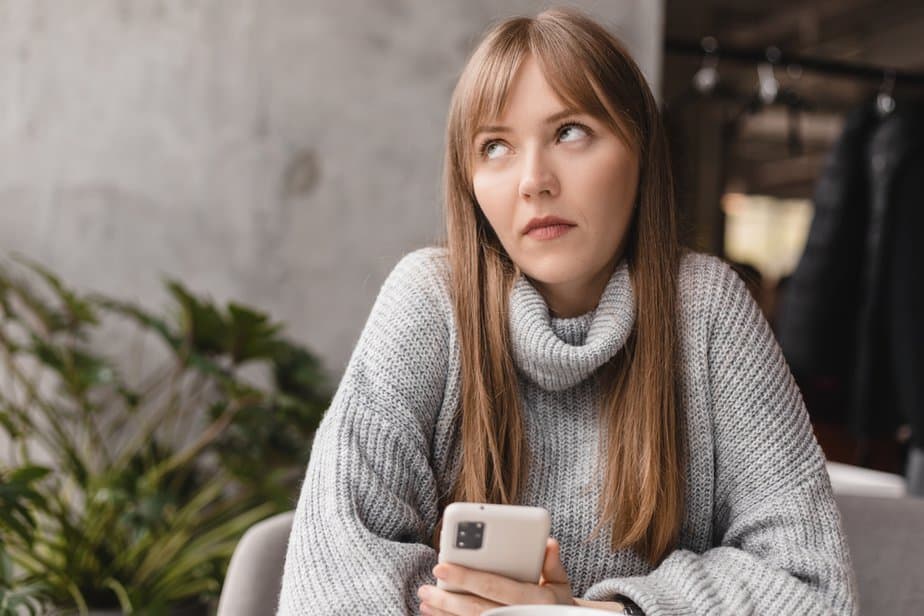
“Whatever.”
“I can’t be bothered.”
“I couldn’t care less if I tried.”
Rolling your eyes might be the most common sign of sass you use when you disagree with someone. Whether you’re a rebellious teenager, a mean girl, or someone who wears their heart on their sleeve, you might end up resorting to the eye roll more often than you might want to.
9. Looking away
“I wish I wasn’t here right now.”
“I’m ready for the conversation to end.”
“I’m shy.”
Looking away or avoiding eye contact altogether means that you’re bored, running out of topics of conversation, or too shy to maintain eye contact with the person you’re talking to. Whether you’re ready to end the conversation or struggling to say something, you might look away to be more comfortable.
We do need to underline (once more) that looking away can be seen as a sign of respect, too. Some people believe that you shouldn’t maintain eye contact with someone who represents some sort of authority to you, and that’s why you might choose to look away rather than look them in the eye.
10. Arched eyebrows
“I’m so happy to see you!”
“I’m so surprised!”
“I’m in utter disbelief!”
Most eye movements are accompanied by brow movements, too. When you arch your eyebrows, you’re probably surprised by something, pleased to see someone, or excited. Arched eyebrows are almost always a positive thing, especially when they’re completed with a big smile.
Moreover, you might arch your eyebrows when someone makes a good point during the conversation or when someone says something that’s borderline unbelievable.
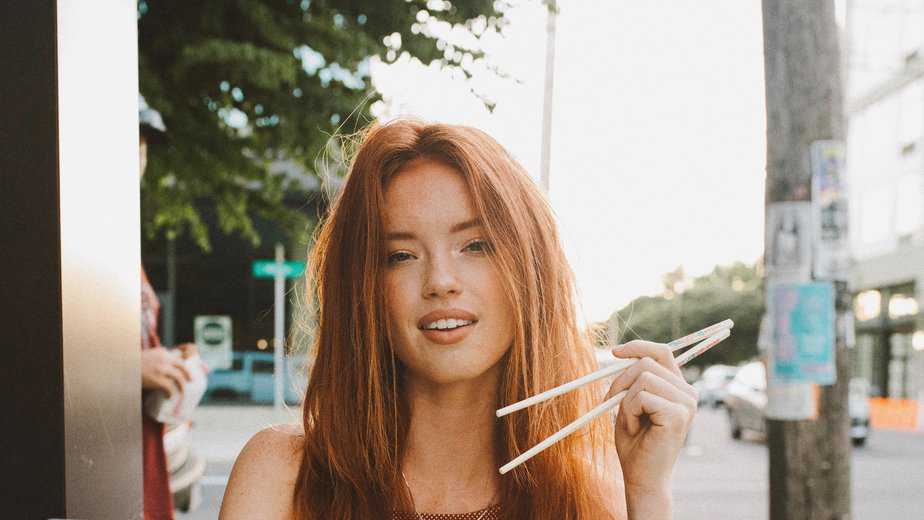
Leave a comment